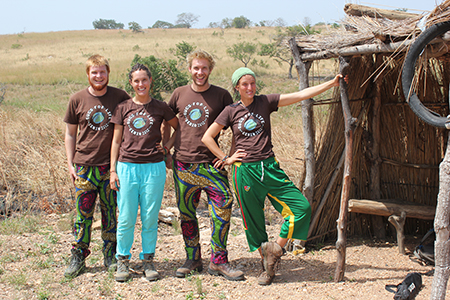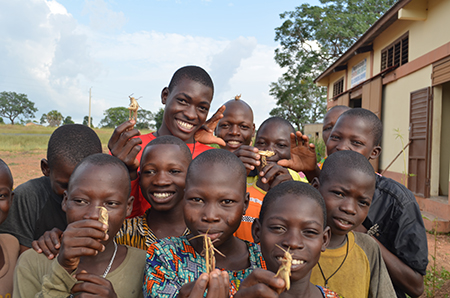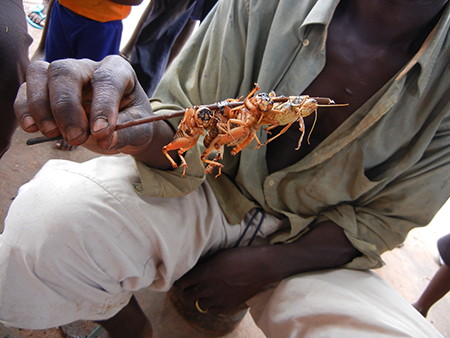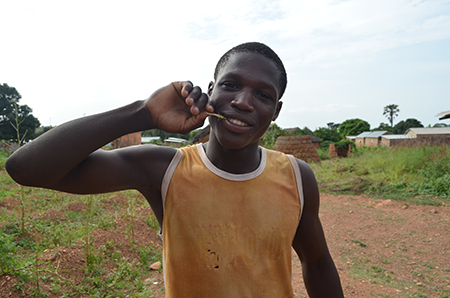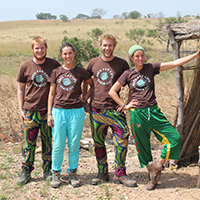Rudi Verspoor (far left) in Northern Benin
Research at the University of Liverpool is exploring the evolution of a gene complex in fruit flies that leads to almost all female offspring, which exists across parts of Europe and North Africa.
Rudi Verspoor, a PhD student from the University’s Institute of Integrative Biology, is looking at how climate change may impact on the progression of this genetic condition and the impact it could have on whole populations of insects.
Alongside this work, Rudi has established, in partnership with Imperial College London, a research group called Bugs for Life, which focuses on the value of insects as a source of nutrition for undernourished adults and children in Africa.
The work focuses on Northern Benin, where catching and eating insects is traditionally seen as a child’s game, but in fact could play a major role in improving food security and schemes to reduce chronic malnutrition across Africa.
Here, Rudi talks through the photographs the team have taken in Benin, about the value of insects to communities in some of the poorest areas of Africa.
“In the Wama community the children collect insects in the early morning when the temperature is cool and then bring them back to cook at home, either grilled on open coals or fried in shea butter. Catching insects is seen more as a fun game which provides a tasty snack rather than an alternative source of nutrition. These traditions are considered important and are passed on from generation to generation within villages”
“Recently there has been considerable interest in using insects as mini-livestock to tackle malnutrition and food security. Research has shown that many insect groups offer comparable nutritional value to other sources of meat, in terms of protein and key micronutrients such as calcium and iron. Northern Benin in particular suffers from issues of malnutrition, and protein and nutrient rich food sources such as insects could be used to address these, especially amongst pregnant women and children”
“While a range of insects are eaten by the Wama, including beetles, crickets, and termites, they only eat particular types. Across Benin there are a number of groups which eat different insects’ specific to their traditions. Understanding these traditions is important for developing insect farming and marketable products for the public”
“Another challenge in developing usable insect products is identifying the different species they eat, understanding their biology, and selecting suitable local insects for further development. Further work is investigating the production and development of a marketable product”
“Currently, only a small number of people commonly eat insects in Benin. Unlike neighbouring countries like Burkina Faso and Niger where it is more developed. There is potential, however, to use insects to combat malnutrition. A combination of education about the nutritional benefits of insects in schools and local women’s groups alongside willingness to trial insect farming at a local scale could help put insects on the menu for many more people”
Rudi (far left) is originally from Aberdeen and completed his undergraduate degree at the University of Edinburgh before working on projects in Mexico, Canada and Ecuador on insects and spiders. His is completing his degree under the supervision of Dr Tom Price and Professor Greg Hurst. The Bugs for life project brought together a multidisciplinary team, incorporating social science and development (Mariangela Verones, second from left), science communication (Craig Macfarlane, first right), and entomology (Laura Riggi, second from right)
